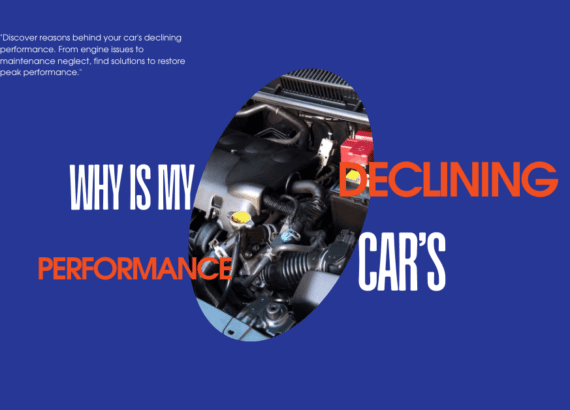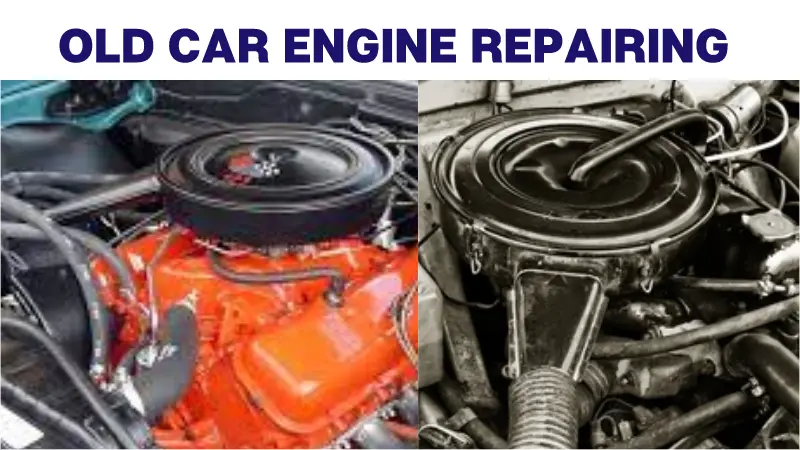Can You Use Biodiesel on Your Diesel Engine?

Exploring alternative fuel options for clean diesel vehicles reveals biodiesel as a promising and sustainable option for environmentally sustainable transportation. Embracing this eco-friendly choice involves a delicate balance and a potential compromise, but the shift to lower-emission vehicles, such as a diesel car or truck, is worth considering.
My personal experience with biodiesel has showcased its potential to transform traditional diesel engines into earth-friendly rides without sacrificing performance. Offering a middle ground that aligns with both the desire for clean energy and the practicality of owning a diesel vehicle.
What Is Biodiesel?
Biodiesel, a renewable and clean-burning alternative resource, seamlessly integrates with your vehicle’s current diesel engine without necessitating major modifications. Derived from recycled cooking oil. Soybean oil, or animal fat, biodiesel offers a sustainable and efficient solution as a diesel replacement.
Blended with traditional petroleum-based diesel, it ensures a smooth and effective performance in cars and trucks. Most biodiesel is produced through transesterification. A chemical process that separates glycerin from fat or oil. Resulting in two individual products – methyl esters (the biodiesel) and glycerin.
This innovative approach not only provides an eco-friendly option for vehicle fuel but also opens avenues for various products, including soap. Showcasing the versatile applications of biodiesel in our everyday lives.
National Biodiesel Board
National Biodiesel Board champions biodiesel. A renewable and clean-burning fuel derived from diverse sources like recycled cooking oil and soybean oil. It seamlessly powers your vehicle’s current diesel engine with minimal modifications, offering an eco-conscious alternative to traditional diesel. Embrace biodiesel for a sustainable drive, minimizing environmental impact and contributing to a greener future.
Biodiesel Blends
Biodiesel blends offer sustainable alternatives to traditional petroleum-based fuels, providing an efficient mixture for diesel engines. In many cases, these blends, enriched with ethanol additives, enhance performance while contributing to reduced emissions. Embrace the available options for a cleaner, greener future with biodiesel blends.
Can You Use It?
In the ever-evolving landscape of diesel engines and alternative fuels. The question arises: Can you use biodiesel on your traditional diesel engine? For new diesel vehicles, the transition is often seamless, as many come biodiesel compatible.
However, for older models and heavy-duty diesel engines, the prospect of modifications looms. Professionals advise a strategic blend, with a 20 percent biodiesel mix being within limits. A modest 4 percent blend serves as a consumer notice, emphasizing the importance of clear labeling.
Seeking guidance from a diesel mechanic or engine specialist is crucial for navigating the nuances of this switch. In the end, biodiesel emerges not as a total change but as a gradual. Eco-conscious modification for a sustainable driving experience.
Big Environmental Benefits
- Biodiesel as an alternative fuel has a substantial positive impact by reducing the emission of lifecycle greenhouse gasses by a staggering 86%.
- It is an essential key component in combating climate change.
- Biodiesel notably emits far fewer hydrocarbons, which significantly lowers particulate matter expelled from a vehicle’s exhaust.
- It acts as one of the decisive factors to reduce smog in the air we breathe.
- Beyond transportation emissions, biodiesel contributes to a healthy water cycle, ensuring that contaminants are minimized.
The Ripple Effect
- Biodiesel, derived from renewable sources, requires far fewer resources—both in terms of land and energy.
- Unlike the exploration of fossil fuel resources in highly protected regions like state and national parks, biodiesel production is more sustainable and less intrusive.
- Making it an important choice for countries seeking to lessen their dependence on nonrenewable resources and maintain the delicate balance of ecosystems.
In my personal journey with biodiesel. I have witnessed not only the mechanical efficacy but also the profound positive impact on the environment. It’s more than just a fuel; it’s a conscious choice towards a cleaner, healthier future. As we search for solutions in the realm of alternative fuels. Biodiesel emerges as a beacon, offering a tangible way to lessen our carbon footprint and preserve the sanctity of our planet for generations to come.
Diesel Vehicles Components and Operation
Exploring the integration of biodiesel into conventional diesel engines involves a nuanced understanding of the intricate components orchestrating the dance of internal combustion. As diesel vehicles increasingly consider the adoption of alternative fuels, the role of original equipment manufacturers (OEMs) becomes pivotal.
These OEMs, the custodians of engine expertise. Delineate the permissible bounds within which biodiesel can safely operate without jeopardizing the engine warranty. Insights from the Clean Fuels Alliance America offer a wealth of information crucial for deciphering. The compatibility and optimal usage of biodiesel in diesel vehicles. Emphasizing the need for a harmonious synergy between environmental aspirations and OEM guidelines.
Precautions for Using Biodiesel in Diesel Vehicles
In the realm of diesel vehicles, contemplating the integration of biodiesel demands a nuanced understanding of compatibility. Particularly in comparison to conventional diesel. The internal combustion engine inherent in diesel vehicles is meticulously calibrated for conventional diesel use, but as environmental consciousness grows, the allure of embracing biodiesel intensifies.
The landscape, however, is far from uniform, as original equipment manufacturers (OEMs) wield substantial influence, delineating guidelines for alternative fuel use. My own journey into exploring biodiesel revealed the paramount importance of OEM approvals, serving as a compass in the intricate maze of fuel choices, including higher-level blends.
Navigating this terrain necessitates not only personal experience but also insights from authoritative sources like the Clean Fuels Alliance America, crucial for discerning the symbiotic relationship between diesel engines and biodiesel. Yet, a lingering concern revolves around potential ramifications on engine warranties, underscoring the need to meticulously examine OEM-endorsed alternative fuel blends for a seamless coexistence between diesel engines and the eco-friendly allure of biodiesel.
Additional Information on Diesel Vehicles Using Biodiesel

Exploring the realm of eco-conscious fuel options, the integration of biodiesel into traditional diesel vehicles offers a compelling narrative. Having navigated the intricacies of internal combustion engines and their various components, it’s evident that major original equipment manufacturers (OEMs) endorse the use of biodiesel, marking a transformative shift in the industry.
While some embrace higher-level blends, it’s imperative to weigh the benefits against potential implications on your engine warranty. For comprehensive insights, organizations like Clean Fuels Alliance America provide valuable information on OEM approvals, shaping a roadmap for a sustainable and informed journey with biodiesel.
Other Considerations
Old Cooking Oil: Consider using this as a reliable source for clean, safe biodiesel production.
Key Factors: Assess the crucial elements before deciding to use biodiesel in your diesel vehicle.
Particles and Impurities: Be wary of potential engine damage caused by these elements when running on biodiesel.
Drive a Newer Vehicle: Research your manufacturer’s stance on biodiesel use and warranty coverage for newly manufactured diesel cars and trucks.
Certified Fuel: Ensure that your vehicle’s warranty remains intact by adhering to the manufacturer’s specified percentage of biodiesel, typically between six and 20 percent.
Converting to Biodiesel: Plan the conversion carefully, considering the small cycle variation and stable combustion state of biodiesel compared to traditional fuels.
Sustainable Fuel Source: Explore biodiesel as an essential component of a sustainable fuel plan for your vehicle.
Urban Drivers: Recognize the practical benefits of biodiesel, especially for those who often find themselves idling or operating at low speeds.
Same Power in High RPM: Understand that biodiesel can deliver comparable power to traditional fuel in high RPM situations.
Blended Fuels: Explore the combination of biodiesel and ethanol for top performance between 1500 and 1800 RPM.
Loss of Power in High Speed: Acknowledge the possibility of a slight power loss during high-speed driving, balancing environmental concerns with performance considerations.
Conclusion
In conclusion, the exploration of biodiesel as an alternative fuel for diesel engines unveils a promising and sustainable option for environmentally conscious transportation. While the shift towards biodiesel involves a delicate balance and potential compromises, the prospect of lower-emission vehicles, such as diesel cars and trucks, is undoubtedly worth considering.
My personal experience with biodiesel highlights its transformative potential, seamlessly turning traditional diesel engines into eco-friendly rides without sacrificing performance. Biodiesel not only offers a middle ground between the desire for clean energy and the practicality of owning a diesel vehicle but also stands as a beacon for a cleaner, healthier future.
As we navigate the ever-evolving landscape of alternative fuels, biodiesel emerges as a tangible solution to lessen our carbon footprint and preserve the sanctity of our planet for generations to come.
FAQs
What happens if you put biodiesel in a diesel engine?
B20 and lower-level blends can be used in many diesel vehicles without any engine modification. Biodiesel raises the cetane number of the fuel and improves fuel lubricity. A higher cetane number means the engine is easier to start and reduces ignition delay.
Can you replace diesel with biodiesel?
Biodiesel is produced in the United States and used in conventional diesel engines, directly substituting for or extending supplies of traditional petroleum diesel.
Does biodiesel clog injectors?
Biodiesel heavily increases the potential for injector deposits. Specifically, the sodium used as a catalyst in the manufacturing process contributes to the formation of metal carboxylate deposits inside the injector, which can reduce engine power and performance and contribute to injector failure.
Can you mix biodiesel and diesel fuel?
These mixed fuels can include up to 20 percent biodiesel, well under the limit of what most diesel engines can handle without modification. And, blends under 4 percent don’t even require a consumer notice or labeling – as they are compatible with all traditional diesel engines.
What are the cons of biodiesel?
Disadvantages of Biodiesel
- Variation in the Quality of Biodiesel.
- Not Suitable for Use in Low Temperatures.
- Biodiesel Could Harm the Rubber Houses of Some Engines.
- Biodiesel is Way More Expensive than Petroleum.
- Food Shortage.
- Increased use of Fertilizers.
- Clogging in the Engine.
- Regional Suitability.
How do you blend biodiesel with diesel?
With splash blends, biodiesel and diesel fuel are loaded into a tank separately. Product mixing occurs as the fuel is agitated during the transportation and delivery of the biodiesel blend to the end user. Being slightly heavier than conventional distillates, we recommend that biodiesel be loaded second on top.











